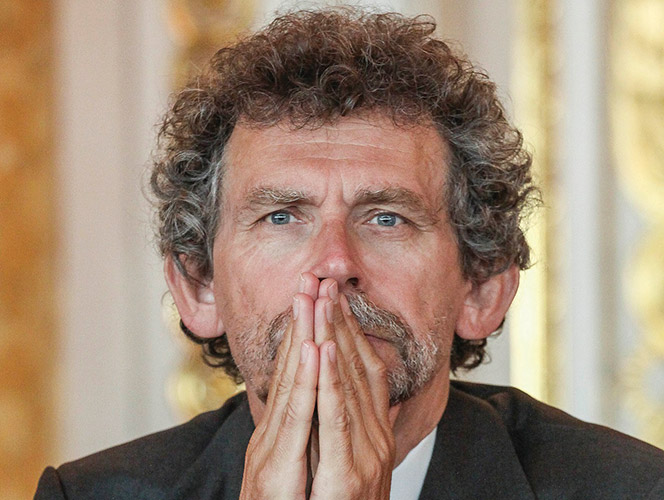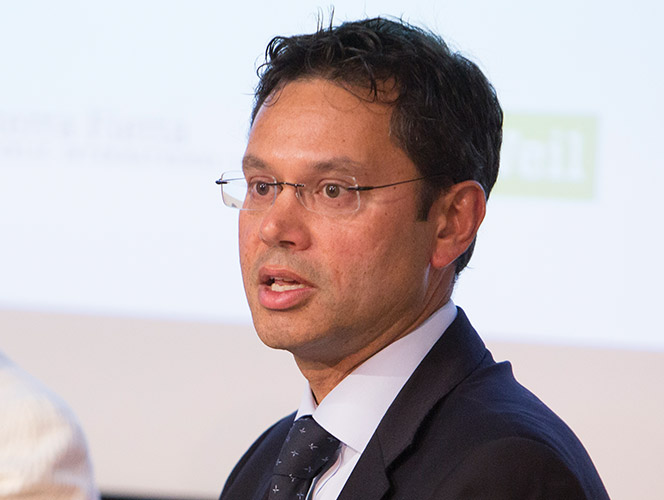‘Arbitration has gone from being the exotic bird of dispute resolution to become almost the norm,’ argues Constantine Partasides of Three Crowns (3C).
The appearance of boutiques such as 3C and Hanotiau & van den Berg is itself a sign of arbitration’s entry into the mainstream. It is tempting to consider parallels with the US-based litigation firms that emerged in the late 1980s and ’90s, when Quinn Emanuel Urquhart & Sullivan and Boies Schiller Flexner broke away from the full-service model to focus on disputes work.
Whether the market will offer enough work for arbitration-only firms to grow into several-hundred-partner international outfits remains to be seen, though no-one expects to see a slowdown in client demand. And the cases themselves are becoming more complex. ‘The smallest case I am currently handling is $250m,’ notes David Goldberg of White & Case. ‘The next smallest is worth over $14bn. At the top end of the market, arbitrations have become much more hostile, larger value, higher stakes and are taking far longer to resolve.’
Arbitration lawyers are seeing major changes in the infrastructure surrounding their practice, with new arbitral institutions, third-party funders and expert witnesses all changing market dynamics.
We teamed up with Navigant Consulting to poll a global sample of arbitrators, and find out how surging demand and new developments are shaping the way arbitration teams operate, building on the views of 239 senior arbitration lawyers representing over 80 different firms globally. We also got the views of some of the world’s leading arbitrators on what they think these changes mean for international arbitration.
A rising tide
Recovering financial loss was by far the main motive clients had for engaging in arbitration proceedings – over two thirds (66%) of partners said this was the driving factor in their caseloads.

‘Banks are starting to doubt that the courts are best placed to provide certainty and predictability in a fair number of jurisdictions.’
Gary Born, WilmerHale
While construction and energy remain the dominant sources of work, arbitration is spreading beyond its traditional markets. Just under a third (28%) of those surveyed specialised in financial services arbitration, while nearly a fifth (18%) specialised in life sciences disputes.
‘Around ten years ago most arbitrators would have told you that banks don’t like to arbitrate because they prefer the certainty and predictability provided by the courts and that IP disputes are not even arbitrable,’ comments Gary Born, the heavyweight chair of the 70-strong international arbitration group at Wilmer Cutler Pickering Hale and Dorr (WilmerHale). ‘Clearly, neither of those things is true. Banks are starting to doubt that the courts are best placed to provide certainty and predictability in a fair number of jurisdictions and a growing number of patent licence cases or other types of IP disputes are going to arbitration.’
Expert witnesses: impartial observers or hired guns?
The growing number of expert witnesses in arbitrations has been a notable feature of trials for the last decade. It has become almost the rule to have a quantum expert involved in any large-value case, while tribunals tend to get lost in esoteric areas, like gas pricing, fairly quickly and will typically rely on experts for guidance.
While the expert witness is now a well-established feature of many arbitrations, the rising number of witnesses has led to a shift in their role. Matthew Secomb of White & Case comments: ‘It is becoming much more common to see people sell their services to this market and with that comes a new level of professionalism among expert witnesses.’
In theory the expert’s role is to give an opinion, but in practice they package a lot of material in a way that is easily digestible by the arbitrators. The user-friendly, polished reports may be far superior to the materials produced by part-time consultants, but many feel it has come at a cost. As Secomb adds: ‘When it comes to the validity of an opinion, they are often a bit removed from the technical skill on which they are opining.’
Gary Born of Wilmer Cutler Pickering Hale and Dorr has a similar take. ‘Experts used to be hands-on specialists in a particular field, who did disputes consultancy work on the side. Now there is a whole industry of people whose primary means of supporting themselves comes through selling witness services to the disputes industry. It doesn’t mean we are seeing more expert witnesses in arbitrations, but there is a greater choice of experts out there.’
As a result, says Three Crowns’ Constantine Partasides, there is more nervousness in tribunals about the role expert witness are playing. ‘The big expert-witness hubs are coming to be seen as another form of advocate sent in to argue a case, which means their evidence is of lesser value.’ Simmons & Simmons’ Stuart Dutson adds: ‘Increasingly, tribunals are faced with two diametrically-opposing expert reports and there is little or no movement in their views.’
Herbert Smith Freehills’ Justin D’Agostino says tribunals are responding to this proliferation of experts by becoming more proactive in determining how such advisers can enter the process. ‘We are definitely seeing more tribunals ask parties to identify at the outset the disciplines they want to consult experts on and the specific questions they want these experts to address. This shows a more sophisticated approach to evidence by the tribunals, but it needs to go further. The next stage in the evolution of evidence in the arbitral process is to have tribunal-appointed experts determining the answer to these questions.’
While financial services arbitration is growing, Philip Clifford QC of Latham & Watkins warns that pathological contracting is still endemic when it comes to disputes. ‘Financial institutions try to hedge their bets by having options clauses allowing them to opt for either litigation or arbitration as it suits them at the time. The problem is that although it’s fine under English law, it’s not fine in other jurisdictions and that can invalidate the arbitration clause. Yet they do it time and again.’
Arbitrations involving financial services and intellectual property (IP) disputes may be growing, but it is notable that specialist institutions for resolving these disputes have failed to gain traction with the wider community of arbitrators.
For example, P.R.I.M.E. Finance (Panel of Recognised International Market Experts in Finance), has yet to take off, in spite of the strong reputation of its founders, Jeffrey Golden and Lord Woolf. The Arbitral Centre of the World Intellectual Property Organization (WIPO), established in Geneva in 1994 as a specialist forum for IP disputes, has met a similar lack of interest.
The reason, Michael Polkinghorne of White & Case suggests, is that such institutions have been caught in a catch-22. ‘Users want an institution that has done the process a large number of times and, while an institution can be specialised by design, it can’t be experienced by design. It’s the familiar problem states like Qatar have faced in trying to launch their own regional centres. It is very difficult to get people to bring an arbitration to your state without a track record and it is very difficult to build a track record if people won’t bring cases to your state.’
Adds Born: ‘It is not clear why something like WIPO would be better at appointing specialised arbitrators than any other institution. Many of the major forums now have their own panels that specifically handle IP disputes. They also have a much larger caseload and hence both a wider experience with arbitrators and greater experience of applying procedural rules, which is likely to lead to consistent and reliable rulings. Specialising in one field can be counterproductive. Often it is not a question of whether you know of a good IP arbitrator, but whether you know one who speaks Farsi or has got experience with technology deals in Taiwan.’
The results of our survey give wide support to the notion that arbitrations are becoming more complicated. Of the 239 partners surveyed, 72% said the typical cases they were involved in were larger or more complicated compared to three years ago.

‘There are more patents registered in Shenzhen than in the rest of the world. If London wants to maintain its position it will have to appeal to these new markets.’
Stuart Dutson, Simmons & Simmons
As a result of this growing complexity, partners are finding themselves spending longer preparing evidence (65%) and consulting with clients on the best approach (63%). However, clients are increasingly expecting their firms to give an advanced estimate of the cost of a matter.
Matthew Secomb of White & Case comments: ‘The demand for pre-estimation of costs is one of the most notable shifts in the market over recent months. The problem is, a lot of lawyers are desperate for the work so have a natural tendency to low-ball the estimate. It is an unstable business model and we are seeing cases being handled for a fee that must be break-even at best, and most likely represents a loss to the firm involved.’
Surprisingly, just over a fifth (21%) of arbitration lawyers are responding to client pressure by recommending the use of forums that restrict or limit the duration of the hearing (see ‘The rise of Asian centres’). However, as Stuart Dutson of Simmons & Simmons notes, while forums and arbitrators are often blamed for prolonged and costly hearings, many of the problems clients encounter could be solved by involving arbitration lawyers earlier in the process. ‘Too often parties overlook the initial drafting and end up with a process that allows parties to delay things by making endless applications. The response is usually to blame the forum or the arbitrators, but there’s not much anyone can do if they agreed to those rules at the outset.’
More in word than in deed – third-party funding
The one thing everyone knows about arbitration is that it can be an expensive business. Increasingly, even companies with the resources to arbitrate are looking to share the financial risks by turning to third-party funders. While funding has been popular in investor-state arbitration for years, its use in commercial cases is more recent. Not only has the number of cases involving funders reportedly grown, but the range of situations parties are seeking funding for has diversified to include everything from securing immediate payment to covering the insurance risks of an award not being enforced.
The new New York Convention
The infrastructure supporting arbitration, including the New York Convention, was designed for a world where arbitration was not so widely used. It may now be creaking under the weight of cases, says David Goldberg of White & Case. ‘The legal services market in international arbitration has multiplied a thousand times in a short period of time. Previously there were a lot of unwritten rules followed by practitioners that everyone tacitly agreed to and which governed the industry. That is now impossible. With so many law firms from so many jurisdictions doing arbitration there can be problems of, broadly, an ethical nature.’
‘The fundamental issue of the New York Convention on enforcement of foreign arbitral awards needs to be addressed. It is by far the most successful international legal convention in human history, but it is grossly outdated. I don’t see how we can continue our practice based on a 60-year-old document.’
While third-party funding is much discussed as a concept, its use does not appear to be as widespread, says Latham & Watkins’ Clifford. ‘Much like treaty arbitration, the subject generates a lot of noise, but the overall number of cases with that as a feature is fairly small. I have my doubts that anything like the number of cases are being funded as funders would have you believe.’ Another senior arbitration lawyer comments: ‘We keep hearing claims from the larger funders that they have bought books of business from the banks. I’ve talked to those banks and I’m not sure that they have.’
This scepticism is underlined by the response to our survey. Just over a third (39%) of partners reported having encountered a third-party funder, either on their client’s or the counterparty’s side.
However, the dust is yet to settle on third-party funding. Several partners said they were exploring funders’ offerings in more detail. Andrew de Lotbinière McDougall, head of White & Case’s EMEA disputes section, comments: ‘Arbitration lawyers need to be aware of the various types of funding available so they can inform clients of their options. Recently, I was able to connect a client with a funder who bought a claim and enforced it on their behalf. The client had no idea this was possible.’
The arbitration funding market is likely to grow further following recent regulatory changes at the main Asian institutions. In early 2017, Singapore passed amendments to its laws, permitting third-party funding of international arbitrations and related court proceedings. Shortly after, Hong Kong’s Legislative Council passed similar laws, which also allow law firms to fund cases (provided they are not representing either party).
Justin D’Agostino, Herbert Smith Freehills (HSF) global head of dispute resolution and regional managing partner for Asia, and a member of the executive committee at the Hong Kong International Arbitration Centre (HKIAC), comments: ‘There has long been a keen interest among funders to enter the Asian market and we are now seeing an influx, including hedge funds. Singapore and Hong Kong are the obvious places of interest, but mainland China also has a burgeoning third-party-funding industry and a number of the bigger Chinese law firms have established their own funding arms.’
The rise of Asian centres – international arbitration’s demographic destiny
Last year, Maxwell Chambers, which houses the regional offices of the Singapore International Arbitration Centre (SIAC) and many other alternative dispute resolution centres, tripled in size, adding 120,000 sq ft of floor space. In the past ten years, SIAC’s caseload has increased fivefold. In 2017 it received 452 new cases (a 32% increase in the cases it received in 2016 and a 67% increase over 2015). Last year it received cases from parties in 58 countries over six continents.

‘No-one paid attention to Singapore as an arbitration centre in the ’90s. Today, people tend not to pay attention to Malaysia, but the decisions coming out of there are really sound.’
Michael Polkinghorne, White & Case
Contrast this with the London Court of International Arbitration (LCIA), which last year received 285 arbitration referrals, a slight decrease from the 303 cases it received in 2016. Hong Kong, which has always received a healthy share of regional commodities and construction work, is also emerging as a credible rival to European centres and is now eyeing inbound and outbound work from China.
As Dutson points out, demography is destiny when it comes to arbitral forums, and the lesson for the more established European and North American centres is clear. ‘Shenzhen was a tiny place 20 years ago. Now it has a metropolitan area with a larger population than Australia. There are more patents registered in Shenzhen than there are in the rest of the world. If London and other traditional seats want to maintain their position they will have to appeal to these new markets.’ Winning this work will mean competing with well-established Asian arbitral institutions.
Globally, 54% of those surveyed had been involved in an arbitration in Asia, including over 60% of partners based in the US and UK, and while the LCIA and Paris-based International Chamber of Commerce International Court of Arbitration (ICC Arbitration) are still seen as pre-eminent global centres (see chart, page 92), Hong Kong and Singapore are quickly catching up.
As a result, the demand for institutions that are culturally and linguistically attuned to Asian clients will grow. Secomb, who made the move to Singapore from Paris three years ago, says Maxwell Chambers has benefited in particular from disputes involving India-based parties. ‘In the old days all Indian work went to London, largely because external counsel decided it would, but India-based GCs much prefer Singapore.’
Not only are these centres benefiting from the growing commercial strength of Asia-based parties, but they are threatening to take clients from other regions, particularly Eastern Europe and Africa, from the likes of the LCIA and ICC.
WilmerHale’s Born says the inroads Asia’s competitor centres have made on the European centres’ client base reflects a sustained effort to introduce rules that respond to the needs of users. Singapore has adopted UNCITRAL model law but has made modifications to allow for new measures around confidentiality or emergency arbitrator procedures.
‘Over the last 15 years or so Singapore has been looking to draw work from many of the same markets as the LCIA, the ICC, and the American Arbitration Association and International Centre for Dispute Resolution. It has self-consciously improved its legal framework and, specifically, its arbitration legislation to the point that it is now state of the art. It is significantly more advanced than the US, and probably more so than the UK and most EU legislation.’
In the nearly nine years he has spent in the Hong Kong market, D’Agostino says both the HKIAC and SIAC have undergone rapid growth to emerge as world-class centres.
‘The rules they have adopted are fantastic, but the real foundation of this success is a strong, independent judiciary with a pro-arbitration mindset. The grounds for setting aside awards or resisting enforcement are very limited. In Hong Kong, it is not possible to endlessly appeal as of right and further measures are in place to put parties off making unmeritorious challenges to awards, for example, by making the party to an unsuccessful challenge pay indemnity costs. This gives people a high degree of confidence that the jurisdiction is on their side.’
D’Agostino also notes the increased demand for ‘arbitration with Asian characteristics’, including a more conciliatory approach and early mediation or evaluation of the dispute by a third party.
A further driver to the regional market is expected with China’s Belt and Road Initiative – a mammoth infrastructure development programme that will see a wave of new infrastructure projects throughout Asia, from building new railways in Indonesia to developing port facilities in Pakistan. Such a large number of investor-state projects, many in volatile markets, will inevitably see disputes shift to Asian centres.
Singapore in particular has been hyped as a potential challenger for the lucrative work referred by Russia-based clients. Until recently, around a third of LCIA cases had a Russian element, making this a serious threat to the London centre’s strength. However, says David Goldberg, co-founder and deputy chair of the board of the Russian Arbitration Association, and a board member of the LCIA, this is wishful thinking. ‘All competition is healthy, but I doubt Asian centres present any serious threat to the LCIA. Geographical location, for a start, will make it difficult, but the simple fact is Russian parties trust and respect London as a seat of arbitration.’
It is also likely that, in the longer term, clients will revise their perceptions of these Asian centres. Dutson notes: ‘Singapore is a very expensive seat and is at least as expensive as London. When you factor in travel time, it can be more expensive. I’ve had clients turn round and say: ‘Why are we doing this in Singapore when it ends up costing as much as London?’
And while SIAC’s popularity is growing, it has yet to become a truly global centre. Partasides comments: ‘The Singaporean government has got behind it and put in place a legal arbitral infrastructure, which is as good as any I have seen anywhere else in the world, but to my knowledge no-one is arbitrating under SIAC rules outside Singapore. That is still a step it must take to demonstrate it is a truly global institution.’ Secomb agrees: ‘The big question is, which of the heirs apparent will successfully challenge the ICC and become a global institution?’
This, at least, is an advantage a number of European forums have. For example, in 2008 the LCIA established a joint venture with the Dubai International Financial Centre (DIFC) to handle regional cases. Robert Stephen, registrar of DIFC-LCIA, comments. ‘There has been a great deal of talk about how successful the Asian centres have been, both in terms of case numbers and the impact they are having on the international disputes market. What is rarely talked about is how much of an uptick there has been for arbitration within the Middle East and how many arbitrations actually take place within the Middle East within a given year. If you aggregate the various centres you will find that in Dubai alone there are more arbitrations taking place than there are in Hong Kong or Singapore.’
Surprisingly, when it comes to assessing the strength of an arbitral centre, fees play a minor role, with under half (49%) listing this as a criteria.
The acceptability of foreign counsel was seen as the most important component of an arbitration centre’s strength and the substantial role that foreign firms have played in SIAC’s cases following market liberalisation in 2008 has added to the confidence users from other regions have in the centre. The survey results also underline the fact that, no matter how good an institution’s rules may be, if it does not have a supportive judiciary then questions over its suitability will remain.
But, argues Stephen, there is no such thing as an impartial view when it comes to an industry like arbitration.
‘People discount the Middle East on the basis of it having very public bumps in the road, but the reality is there are some very successful arbitrations that take place in this region. Undoubtedly, HKIAC and SIAC are doing a fantastic job, but we have to remember that arbitration is a business and lots of people make lots of money out of it. If you’re in a particular city or centre you’re going to extol its virtues.’
There may be other centres that come up and challenge them. After all, as Polkinghorne points out: ‘No-one really paid attention to Singapore as an arbitration centre in the 1990s. Today, people tend not to pay too much attention to Malaysia, but the decisions coming out of there are really sound and the Asian International Arbitration Centre [AIAC, formerly Kuala Lumpur Regional Centre for Arbitration] has some of the best leadership I have seen in any institution. There are some other really good centres that have the potential to emerge over the next 20 years, such as the China International Economic and Trade Arbitration Center and the Korean Commercial Arbitration Board.’
Perhaps, but as Secomb says, the competition between institutions is reaching a natural equilibrium. ‘All the international centres are pushing to find points of differentiation, but it is becoming harder for sophisticated users to tell them apart because, frankly, they are all good.’
In association with Navigant Consulting







